10 Best Herbal Tinctures For Dental Plaque

Herbal tinctures have gained popularity as natural alternatives for managing dental plaque due to their antimicrobial and anti-inflammatory properties.
Common herbs used in these tinctures include tea tree oil, neem, and calendula, which are known for their ability to inhibit the growth of bacteria that contribute to plaque formation. When applied directly to the teeth and gums, these tinctures can help reduce bacterial buildup and promote oral hygiene without the use of harsh chemicals. However, it is important to consult with a dental professional before using herbal tinctures to ensure they are safe and effective for individual oral health needs.
While they may offer some benefits, they should not replace regular brushing, flossing, and professional dental cleanings.
Table of Contents
- 1. Salvia (Salvia officinalis)
- 2. Oregano (Origanum vulgare)
- 3. Ceylon cinnamon (Cinnamomum verum)
- 4. Black pepper (Piper nigrum)
- 5. Aloe vera (Aloe barbadensis)
- 6. Eucalyptus (Eucalyptus globulus)
- 7. Thyme (Thymus vulgaris)
- 8. Melaleuca (Melaleuca alternifolia)
- 9. Fennel (Foeniculum vulgare)
- 10. Rosemary (Rosmarinus officinalis)
1. Salvia (Salvia officinalis)

Salvia officinalis, commonly known as sage, has been traditionally used for its antimicrobial and anti-inflammatory properties, making it a valuable ingredient in herbal tinctures for dental plaque.
These tinctures are typically prepared by soaking dried sage leaves in alcohol to extract their active compounds, such as thujone and flavonoids, which exhibit antibacterial effects against plaque-causing bacteria like Streptococcus mutans. When used as a mouth rinse or applied directly to the gums, sage tinctures can help reduce bacterial buildup and prevent the formation of dental plaque. Additionally, the astringent properties of sage may help tighten gum tissue and reduce gingival inflammation, supporting overall oral health.
However, it is important to use these tinctures in moderation and consult with a healthcare professional before incorporating them into a dental care routine.
2. Oregano (Origanum vulgare)
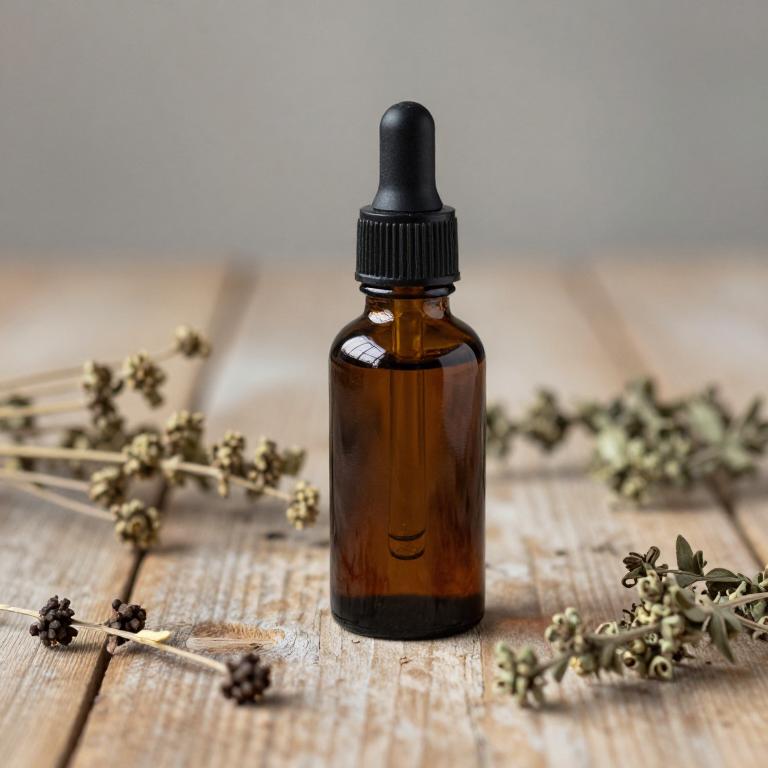
Origanum vulgare, commonly known as oregano, has been traditionally used for its antimicrobial and anti-inflammatory properties, making it a promising ingredient in herbal tinctures for dental plaque management.
The essential oils extracted from oregano leaves, particularly carvacrol and thymol, exhibit strong antibacterial effects against Streptococcus mutans and other bacteria associated with plaque formation. When formulated into a tincture, oregano can be applied directly to the gums or used as a mouth rinse to reduce bacterial buildup and inhibit plaque growth. Its natural antiseptic qualities may help prevent gingivitis and support overall oral hygiene without the use of harsh chemical agents.
However, further clinical studies are needed to fully establish its efficacy and safety for long-term dental use.
3. Ceylon cinnamon (Cinnamomum verum)
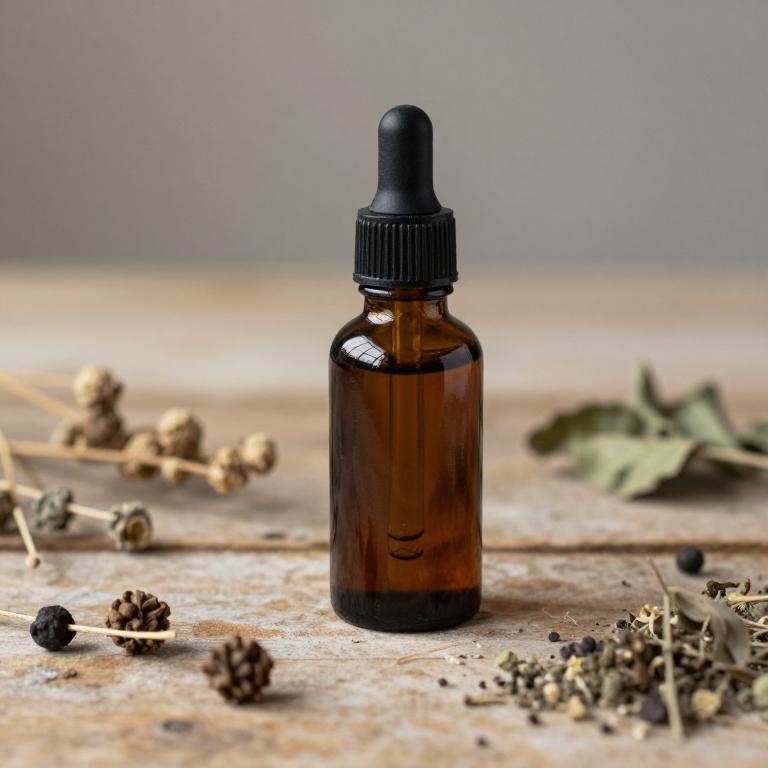
Cinnamomum verum, commonly known as true cinnamon, has been traditionally used in herbal medicine for its antimicrobial and anti-inflammatory properties.
When prepared as a tincture, it can be applied directly to the gums or used as a mouth rinse to help combat dental plaque by inhibiting the growth of harmful bacteria. The essential oils in cinnamon tinctures, such as cinnamaldehyde, have been shown to reduce biofilm formation on teeth surfaces. Regular use of cinnamon tincture may support oral hygiene and contribute to fresher breath.
However, it is important to consult with a dental professional before incorporating it into a regular oral care routine to ensure safety and effectiveness.
4. Black pepper (Piper nigrum)
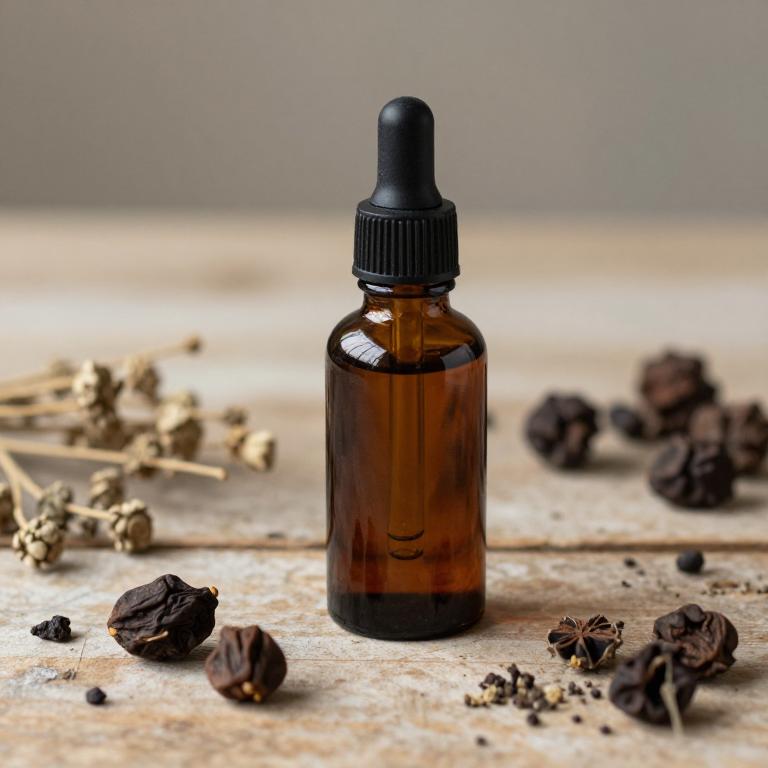
Piper nigrum, commonly known as black pepper, contains bioactive compounds such as piperine that have shown potential in reducing dental plaque formation.
Herbal tinctures made from black pepper may help inhibit the growth of bacteria responsible for plaque buildup in the mouth. These tinctures can be used as a natural alternative to commercial mouthwashes, offering a gentler yet effective option for oral hygiene. Studies suggest that piperine may enhance the antimicrobial properties of other ingredients when used in combination, further supporting plaque prevention.
However, more clinical research is needed to fully establish the efficacy and safety of piper nigrum tinctures for long-term dental care.
5. Aloe vera (Aloe barbadensis)
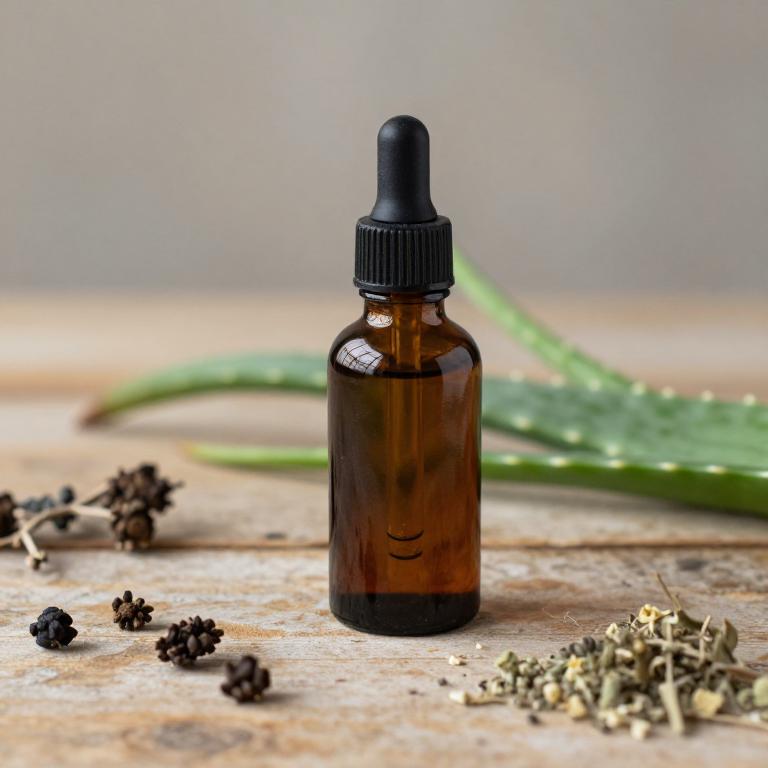
Aloe barbadensis, commonly known as aloe vera, has been traditionally used for its soothing and healing properties, and its herbal tinctures have shown potential in the management of dental plaque.
The tinctures contain compounds such as polysaccharides, enzymes, and antioxidants that may help reduce the buildup of bacterial biofilm on teeth. Studies suggest that aloe vera tinctures can inhibit the growth of harmful oral bacteria, thereby preventing plaque formation and promoting gum health. When used as a mouth rinse or applied directly to the gums, these tinctures may offer a natural alternative to conventional plaque-removing agents.
However, further clinical research is needed to fully understand their efficacy and safety in long-term dental care.
6. Eucalyptus (Eucalyptus globulus)
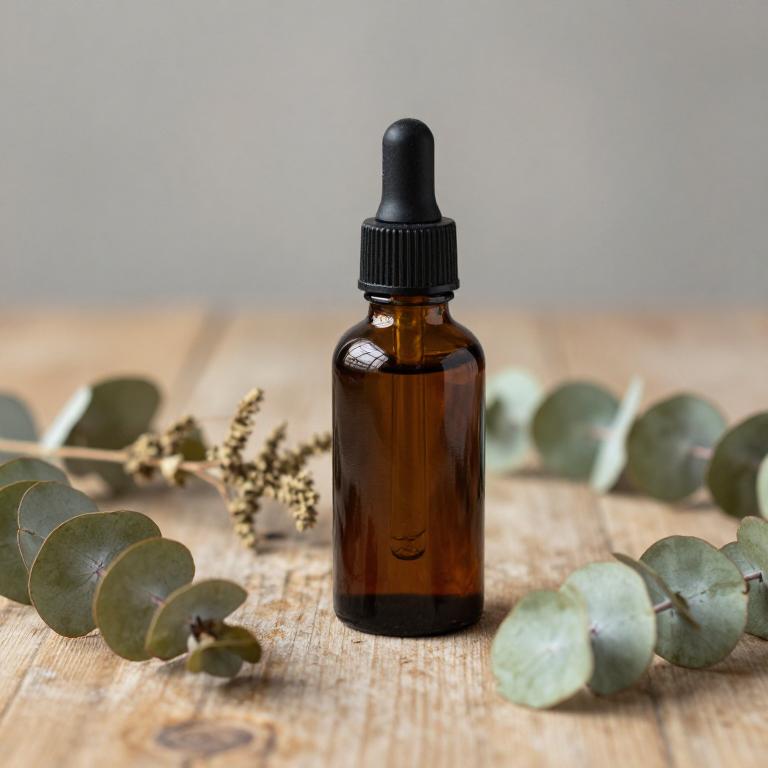
Eucalyptus globulus, commonly known as eucalyptus oil, has been traditionally used for its antimicrobial and anti-inflammatory properties, making it a popular ingredient in herbal tinctures for dental care.
These tinctures are often formulated to target the bacteria responsible for dental plaque, such as Streptococcus mutans, by disrupting their biofilm formation. The active compounds in eucalyptus globulus, including eucalyptol and cineole, exhibit broad-spectrum antimicrobial activity that can help reduce plaque buildup and prevent gingivitis. When used as part of a daily oral hygiene routine, these tinctures may offer a natural alternative to conventional plaque-fighting products.
However, it is important to consult with a dental professional to ensure safe and effective use, especially for individuals with sensitive mouths or existing dental conditions.
7. Thyme (Thymus vulgaris)

Thymus vulgaris, commonly known as thyme, has been traditionally used in herbal medicine for its antimicrobial and anti-inflammatory properties, making it a promising candidate for addressing dental plaque.
Thymus vulgaris herbal tinctures contain essential oils such as thymol, which exhibit strong antibacterial effects against common oral pathogens like Streptococcus mutans. These tinctures may help reduce the accumulation of biofilm on teeth by inhibiting the growth of bacteria that contribute to plaque formation. When used as a mouth rinse or in conjunction with regular oral hygiene practices, thymus vulgaris tinctures may support gum health and prevent the progression of periodontal disease.
However, further clinical research is needed to fully establish their efficacy and safety in dental care applications.
8. Melaleuca (Melaleuca alternifolia)
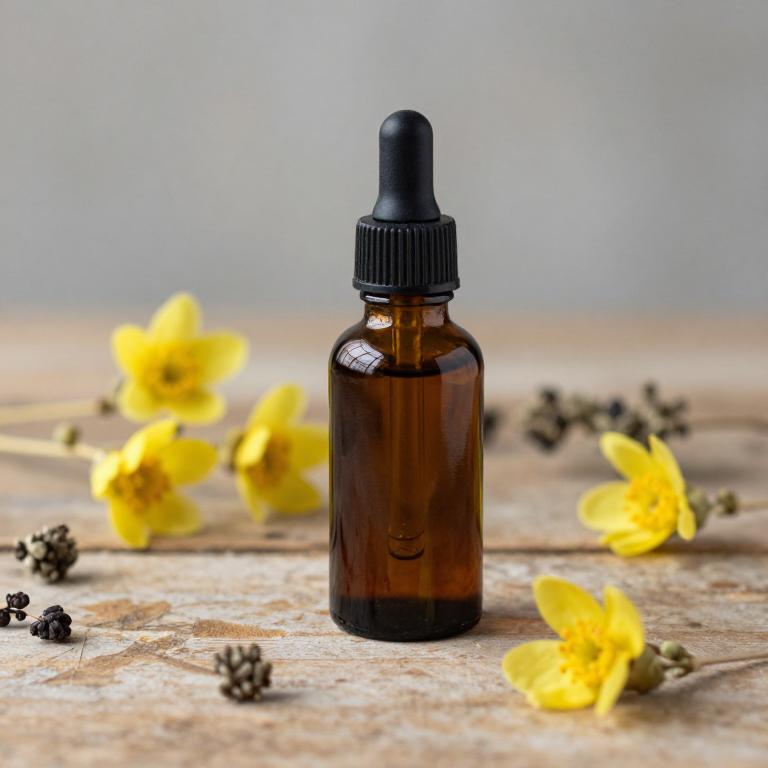
Melaleuca alternifolia, commonly known as tea tree oil, is a potent natural antiseptic that has been increasingly used in herbal tinctures for its effectiveness against dental plaque.
These tinctures are formulated to target the bacteria that contribute to plaque formation, helping to reduce its buildup on teeth and gums. The antimicrobial properties of tea tree oil inhibit the growth of Streptococcus mutans and other harmful oral bacteria, promoting better oral hygiene. When used as part of a daily dental care routine, these tinctures can complement traditional brushing and flossing methods.
However, it is important to consult with a dental professional before incorporating tea tree oil tinctures into one’s oral care regimen to ensure safe and effective use.
9. Fennel (Foeniculum vulgare)

Foeniculum vulgare, commonly known as fennel, has been traditionally used in herbal medicine for its various health benefits, including its potential role in dental care.
Fennel tinctures, derived from the dried seeds of the plant, contain compounds like anethole and limonene, which have antimicrobial and anti-inflammatory properties. These properties make fennel tinctures a natural alternative for reducing bacterial growth associated with dental plaque formation. When used as a mouth rinse or incorporated into oral hygiene routines, fennel tinctures may help inhibit plaque buildup and promote fresher breath.
However, it is important to consult with a healthcare professional before using fennel tinctures, especially for individuals with known allergies or medical conditions.
10. Rosemary (Rosmarinus officinalis)

Rosmarinus officinalis, commonly known as rosemary, has been traditionally used for its aromatic and medicinal properties, and its herbal tinctures have gained attention for their potential benefits in oral health.
Rosemary tinctures contain compounds such as rosmarinic acid and carnosic acid, which possess antimicrobial and anti-inflammatory properties that may help reduce the formation of dental plaque. These tinctures can be used as a natural alternative to conventional mouthwashes, offering a soothing and refreshing effect on the gums and teeth. When applied regularly, rosemary tinctures may support gum health by inhibiting the growth of bacteria that contribute to plaque buildup.
However, it is advisable to consult with a dental professional before incorporating such tinctures into a regular oral care routine to ensure safety and effectiveness.